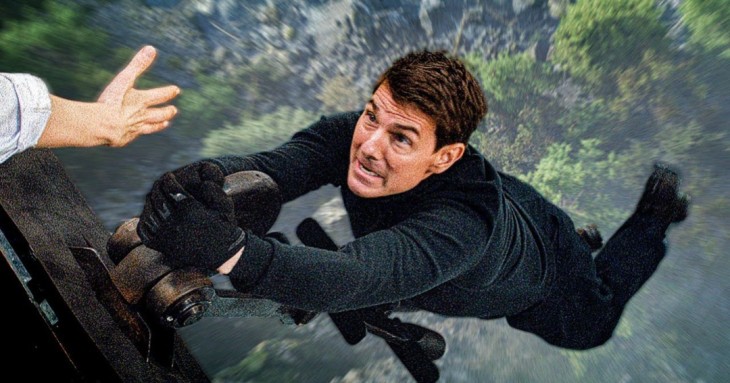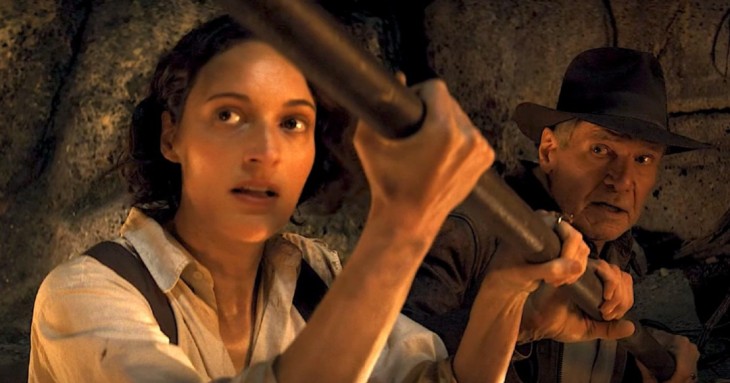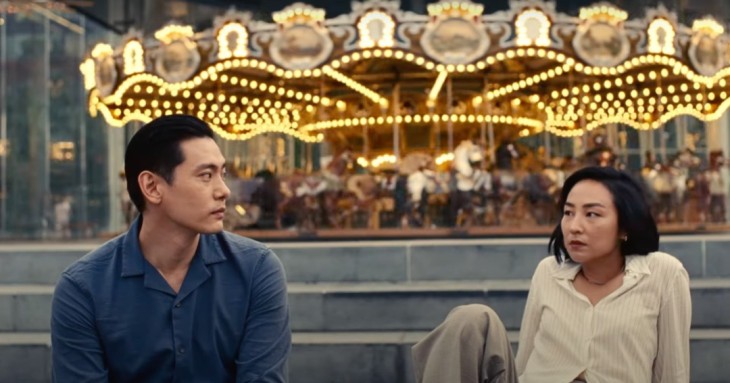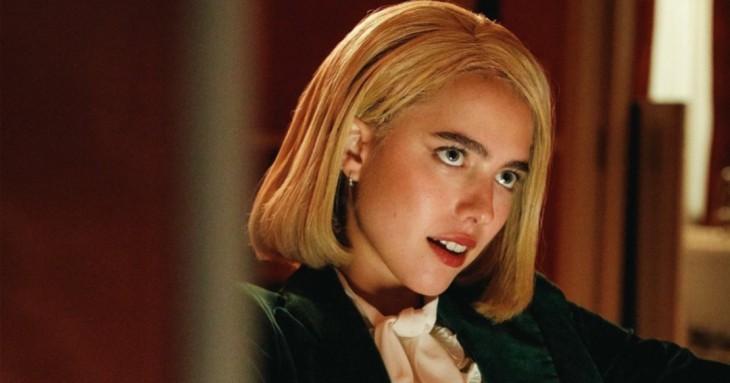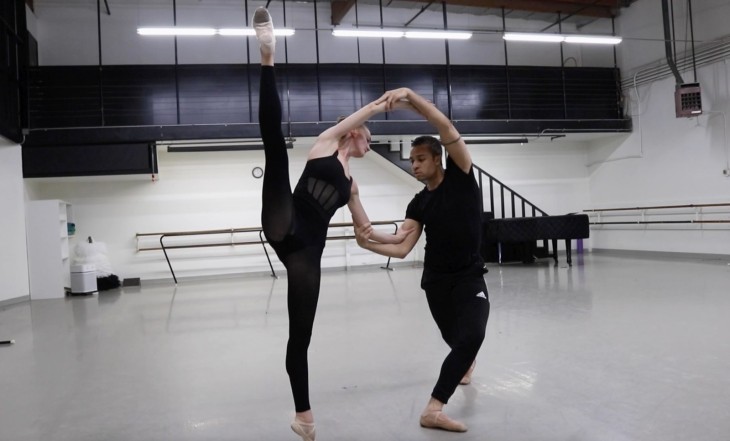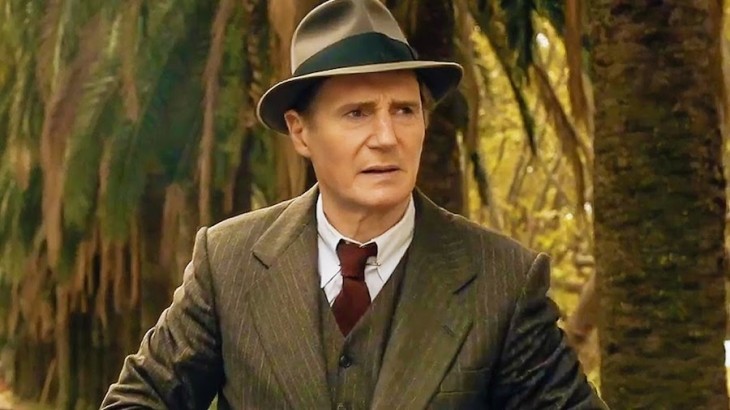Orlando Bloom shot to instant stardom when he enchanted audiences as Legolas Greenleaf in “The Lord of the Rings” trilogy. He has since co-starred in many movies including “Black Hawk Down,” “Troy,” the “Pirates of the Caribbean” films.
In his latest film, “Sympathy For Delicious,” Bloom plays an outrageous rock star. Directed by Mark Ruffalo, the screenplay, written by Christopher Thornton, centers around Thornton’s character of Dean O’Dwyer, “Delicious D,” who, like Thornton, is paralyzed. He eventually discovers he has the power to heal people but cannot heal himself and both he and the other characters have to deal with the ensuing moral and ethical complications of this gift.
Hollywood veteran Juliet Lewis began dazzling audiences with her Oscar-nominated role as the young girl in “Cape Fear” and her brilliant characterizations can be seen in dozens of films, with one of the most memorable being “Natural Born Killers,” which co-starred Woody Harrelson.
Bloom and Lewis recently sat down with a group of journalists to discuss their roles. The following interview has been edited for print purposes.
What drew you to the script?
Lewis: What appealed to me were the different themes, particularly healing, and the question of if you had that gift, but couldn’t heal yourself, would you heal others. I also loved the idea of being a bass player and the egomaniacal character of The Stain, the lead singer of the band played by Orlando.
How did you prepare for the role?
Bloom: I sat down with Mark (Ruffalo) a few weeks before we went into production and even though I had wanted to get out of my comfort zone, I was terrified about stepping into a role that was actually written for someone else and was a big stretch for me.
Can you talk about the music?
Bloom: We actually went down to Guadalajara for a weekend. I slept in a bunk bed with Mark, which was hilarious. He was on the top bunk and I was on the bottom, so let’s get that straight (laughs). We spent time with The Besnard Lakes, the Canadian indie rock band who wrote the music for the film. They insisted that we use their drummer in the movie.
Lewis: He was right because everyone knows you’re only as good as your drummer.
Bloom: The singing was basically standing in a booth and wailing. I found such freedom in doing this role because I’d never done anything like it and didn’t have any investment of ego.
Playing these roles, did you get a feeling of what it must be like to be a rock star?
Bloom: She does it for real.
Lewis: I’ve had a band for seven years, but for the last seven months I’ve been focusing on some movies that have come out. It’s really phenomenal to have all the odds against you to make your music and then become a profitable touring act as an independent musician. On stage there’s nothing like it and I equate it with communing with the gods because you’re creating a sense of unity and connection and release through this vibration of drum, bass, and guitar. It’s a magical experience, so it was a trip for me to play the bass player and Orlando was an amazing singer right out of the gate. I’m actually aching to get back on the road. It’s sort of like missing a lover so I’ll be hitting the road again by the end of the year, after I make a record.
Did you have a particular rock star in mind in developing your character?
Bloom: I based The Stain on some of those great rock northern bands (England) like Oasis, Galligan Brothers, and Ian Brown from The Stone Roses. All of those guys were like ‘we are the best band in the world.’ I was thinking about that because all the characters in this movie lose themselves in success. The idea of celebrity, fame, success, power, and money doesn’t prevent you from becoming undone, and when you do become undone, you can kind of find yourself in failure and in a way, are reborn.
The character of Delicious D becomes cynical and will only heal others if he gets paid. Does that cynicism exist with Hollywood actors?
Lewis: I guess there are those kinds of actors, but I can only follow my heart. I remember doing a movie because I wanted to work with the director, even though the part and story weren’t that great. That said, I’ve found that any compromises you make usually go south.
Did anything happen in your personal life that influenced you in wanting to do this film?
Bloom: Yes. I fell out of a window and knock on wood that I didn’t wind up in a wheelchair like Chris (Christopher Thornton). But what really interested me about the movie was the love and dedication and the sheer will power of both Chris and Mark. It took 100 drafts and 10 years to get this movie made. It’s a fairy tale movie in a way.
Did you have special pressures during the shoot?
Bloom: The pressure you have when you’ve got so little money is enormous. You’ve got very little time to get through so many pages of dialogue. It’s like a boiling pot and it either blows up or blows out. One of the things I noticed was that under that pressure people really do remarkable things, especially when directed by someone like Mark who understands the actor’s process. He created a very safe environment so that people felt they could totally fail.
Does becoming certain characters ever frighten you?
Lewis: My job is to make my characters seamless and pure, and I think that’s why people associate me so much with my roles. They think I must be that way. There are so many aspects of this character that I am not. I am not a bass player or a drug addict. I was actually scared because Ariel is so disconnected from reality and self destructive, but at the same time, she’s kind of the truth seer.
How much did you rehearse?
Lewis: We did a little bit of rehearsal but usually in these small independent movies time is not a luxury, so you have to do your homework on your own.
Are the pressures different on low-budget films?
Bloom: It’s not like there’s more pressure with an indie, but when nobody is being paid, and people are there for the love of the project, it’s a different creative process and you’re invested in an alternative way. The whole process inspired me
Lewis: There’s always pressure, whether on a big film or an indie. Sometimes a lot of money is wasted and the more money involved, the more pressure you feel. But you do have to move quickly with an indie and have a shorter shoot schedule.
What happened for you internally when you got into costume and make-up?
Bloom: That was what I was both excited and slightly terrified about because it caused me to shift my perception about myself that was different from all the other movies I’ve made. This was an opportunity to have a real crack at a character who is outlandish and a bit of a petulant child. The hair, jewelry, leather jacket, pants, and tattoos, all helped me get into The Stain. I wanted to just let it rip and I had the best time. It was a freeing experience and I was able to break out of a mold. And, bad guys do have all the fun (laughs).
Do you assess your feelings about a project?
Lewis: Absolutely. The intriguing subject of healing is the biggest theme in this project and was the biggest draw for me. It poses the question that if you had the power to heal others, but you could not heal yourself, what would you do with that gift? I also loved the question of did this gift come from God? As I get older, I’m attracted to these themes and they play a huge part in my life. Trying to be more selfless, trying to have faith and when it goes awry, how do you get it back, are powerful themes not often explored in movies.
Your work is always compelling. Who were the actors you admired growing up?
Lewis: My dad, Jeffrey Lewis, has been a character actor and that was my introduction to show business. I grew up watching him work on Clint Eastwood sets and Laverne & Shirley and everything in between. So I always understood that it was a colorful line of work with interesting people, long hours, and never the same experience twice. I was also inspired by actors like Robert De Nero, Bette Davis, and Karen Black, who was a family friend. When I was little, we would play charades at her house. She was sort of my first acting teacher, without actually being an acting teacher, and would validate my instincts.
How do you feel about another “The Lord of the Rings?”
Bloom: I’m excited about the prospect. It was 10 years ago that I started that journey and it will be interesting to see how it will be different. It’s not official, but there are ways to make it work. The gratitude I owe Peter Jackson for everything is beyond huge and if he said jump, I’d say ‘how high?’
Can you comment on why there’s another remake of “The Three Musketeers”?
Bloom: It’s a story that can be retold for every generation and this remake is for this generation. It’s a crazy action adventure in 3-D, and it goes to a whole other level. I think the musketeers are great roles, but when I got cast as the Duke of Buckingham, I thought it was a great turn for me and was very excited.
Did you have a childhood experience that profoundly influenced your life?
Bloom: Yes. Probably finding out when I was 13 that my father Harry Bloom, who died when I was four, wasn’t really my father. I’m lucky because my real dad, Colin Stone, who helped my mom raise me, is a huge part of my life today.
Has becoming a parent changed your outlook?
Bloom: Absolutely. There’s no time for anything other than for what you feel is really important. Everything comes into focus because all that other nonsense you use to worry about seems insignificant. It’s like I’ve got this three-hour block of time before I get baby puke on me (laughter).


